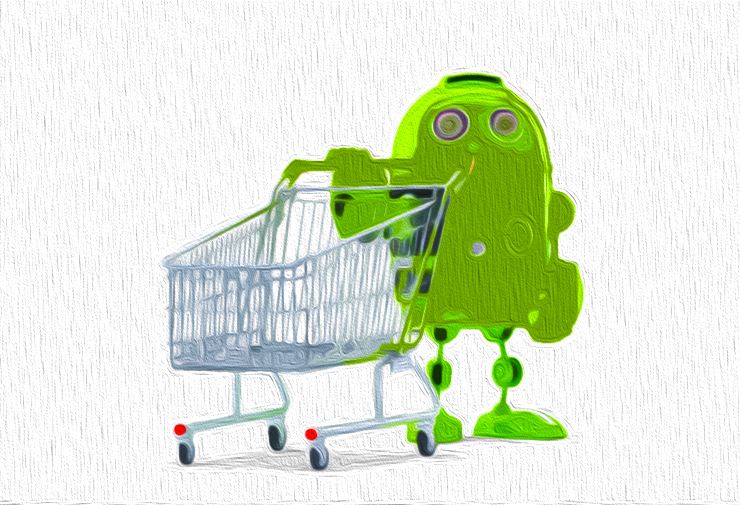
Today's marketer understands the significance of brand personality, which refers to how a brand is humanized. Brand personality holds increasing importance in both B2B and B2C markets, as consumers seek a connection with the companies they support.
Why Brand Personality Matters:
– 84% of buyers prefer to be treated as individuals rather than just numbers.
– 82% look for brand values that resonate with their own.
– 73% are more inclined to make a purchase if they love the brand.
To build the emotional connection consumers crave, your brand personality must be authentic and reflective of who you are.
Discover Your Brand's Personality with Marketing Insider Group:
Marketing Insider Group can assist you in evaluating your brand personality using a unique measure—the Hogwarts House model.

The Sorting Hat from Hogwarts is renowned for placing students in their ideal houses based on personality traits. Similarly, it can help determine your brand's personality.
Experts claim that the Hogwarts Sorting Hat is as precise and consistent in determining personality traits as the Myers-Briggs test.
Understanding your authentic brand personality enables you to engage genuinely with others while staying true to yourself.
The Content Marketer Sorting Hat — Which House Does Your Brand Belong To?
Gryffindor: Brave, Determined
Gryffindor represents bravery and determination. Brands like Red Bull and Nike embody these traits by daring to challenge norms and inspire greatness in their audiences.
Ravenclaw: Brainy, Wise
Ravenclaw brands, such as Moz and Google, showcase intelligence and thought leadership through innovative content that educates and empowers their audience.
Hufflepuff: Hardworking and Trustworthy
Brands like General Electric and John Deere exemplify hard work and trustworthiness by delivering consistent, customer-focused content that builds lasting relationships.

Slytherin: Shrewd, Ambitious
Slytherin brands, including Dollar Shave Club and Apple, exhibit ambition and edginess by daring to be different, taking risks, and staying ahead of the competition.
While this article takes a playful approach, it underscores the importance of diverse brand personalities in content marketing success. Understanding and embracing your brand's unique traits can set you apart and resonate with your audience.
Frequently Asked Questions
Social Media Marketing is an excellent way to market your business online. It is a great tool to increase brand awareness, generate leads, and sell products. Here are five strategies for using social media to grow your business.
- Create a Facebook Fan Page – This allows you to interact directly with customers on Facebook. You can also upload files such as photos and videos.
- Twitter: Promote your business – Twitter is another great place for information sharing and connecting with people. Use hashtags to increase visibility.
- Post Videos on YouTube – Uploading videos is very popular because many people enjoy watching them. If someone likes what they see, they may click to visit your website.
- Host Live Event – Hosting live events will allow you to meet face to face with potential clients. They can ask questions about your products and services.
- Respond to Customer Reviews. Positive reviews can build trust with clients and encourage repeat sales. Make sure to respond quickly to any negative comments.
What are the four functions marketing serves?
Marketing is the art of creating demand and products.
It provides information about the organization's offerings and values, as well as how they impact customers' lives.
Marketing stimulates interest, creates awareness, and finally drives action (or purchase), in response to an invitation.
The four functions of marketing include:
- You can create demand by building relationships with potential customers and convincing them that your product/service is worth their time.
- Stimulating Interest – This involves increasing consumer awareness of your product or service.
- Building Awareness – This refers ensuring that customers know about your product or services and are able to decide whether they want to buy them.
- Driving Action – This is the act of ensuring that consumers purchase your product or service after being made aware.
What eCommerce Marketing Strategy Should I Use?
There are three types of eCommerce marketing.
- Direct marketing
- Search Engine Optimization (SEO).
- Social Media Marketing
Direct marketing is sending emails directly to buyers. These emails can contain special offers and coupons. This marketing strategy aims to build customer loyalty.
Search engine optimization is the process of improving your website's ranking in search engines such as Google, Yahoo!, and Bing. Your site will appear near the top results for keywords related to your product/service. This will increase your traffic.
Social media marketing uses websites such as Twitter, Facebook, Pinterest, Instagram, YouTube, etc. To connect with your audience. It's easy to set-up and use, and it's effective.
Each method has its own pros and cons. SEO is time-consuming and requires effort while direct advertising is easy to do. However, if you only focus on one method, you won't see the full benefit of eCommerce marketing. We recommend that you combine different marketing methods.
To promote your products, you can send emails and get high rankings in search engine results. Or you could advertise on social media and then link to your site from those pages.
There are many ways to market an eCommerce store. Pick the best for you and make sure to implement them regularly. Best of luck!
How can you use search engine marketing to your advantage?
Search Engine Marketing is a key component of digital marketing. SEM includes paid advertising, sponsored ads, display ads and paid inclusion. It also includes search engine optimization (SEO), mobile marketing, social media marketing, video advertising, mobile advertising, and other related services.
What are the 4 types of marketing?
Marketing is divided into four categories: Traditional Advertising, Direct Mail, Public Relations, and Digital Marketing. Each goal has a different purpose and should each be used for its intended purpose. You can then combine them to accomplish your goals.
What is eCommerce marketing?
Ecommerce marketing is simply online shopping. It is the act of selling products online. This could include purchasing goods from companies and selling them on the internet. If you are an individual vendor, this includes selling on eBay. You could also set up a business to sell your goods for profit. You want to make money online selling your products.
These are more details about eCommerce marketing
A successful eCommerce website requires you to decide what products you want. You should then decide whether you will offer one item (such a book), multiple items (such DVDs and books), or both.
Once you know the product you offer, you will need to find a supplier. A supplier is an organization that manufactures and sells the product you wish to sell. If you wanted to start selling greeting card, you would first need to find suppliers that make and sell them.
After you've found a supplier, you'll need to create a website to display the products and allow buyers to purchase them. Some suppliers provide templates; others require that you design your template. Once your website is up and running, it's important to market it in order to get visitors. This could include publishing articles on blogs or forums, advertising on Google Adwords websites and sending emails relevant to contacts.
You have many options when it comes time to promote your eCommerce business. These include email marketing, search engines and social networks.
- Email marketing is a smart choice for most companies. It's cost-effective, easy to implement, and delivers results. However, it requires time and effort in order to generate quality leads.
- SEO (search engine optimization) is a technique that helps improve a webpage's rankings for keywords. This is often done via link building, which allows pages to rank higher in search engine results.
- Businesses are increasingly relying on social networking sites, such as LinkedIn and Facebook. These sites are used by many people every day to connect with their family and friends. Posting interesting content on these sites will help you get exposure to thousands more people.
- The mobile app is also an important tool for eCommerce marketers. Shoppers love to use their tablets and smartphones to shop. An app makes it easy to reach customers from wherever you are.
eCommerce has grown to be a huge business. There are many ways to promote your business. Be wise when choosing an eCommerce marketing strategy to maximize your business's potential.
Statistics
- According to statistics, 60% of online shoppers worldwide actively search for coupons before purchasing from a virtual shop. (influencermarketinghub.com)
- This allows us to deliver CPCs that are 80% less than average and CTRs 4-5 times higher than average. (marketinginsidergroup.com)
- In 2017, 34% of marketers cited co-branding as the most effective way to increase the number of email subscribers. (influencermarketinghub.com)
- A poll earlier this year found that 14% of older Gen Z's had bought an item in the previous six months based on an influencer's recommendation. (influencermarketinghub.com)
- 81% of brands employ affiliate marketing, and eCommerce sites are particularly good candidates. (blog.hubspot.com)
External Links
statista.com
blog.hubspot.com
hubspot.com
moz.com
- SEO Learning Center, Moz
- [Case Study] How We Ranked #1 for a High-Volume Keyword in Under 3 Months – Moz
How To
Six Types Ecommerce Marketing
How do I market my eCommerce store?
Ecommerce marketing is one of the most challenging marketing tasks. You need to learn about your customers' buying patterns and how they interact with you products and services. This information will allow you to create an effective strategy to reach your goals.
There are six types or eCommerce marketing strategies.
- Product Strategy – The first step to deciding what product you want online is to determine your product type. There are three main types of products: physical goods, digital goods, and membership websites. Once you've decided which category you're going to work with, you'll need to decide whether to offer wholesale or retail prices. Wholesale pricing lets you determine the price of your products. Retail pricing requires you to charge customers for your products directly.
- Pricing Strategy: Next, decide how much you want to earn from selling products. Profit margins, competition, shipping and taxes are all factors to consider. When determining your pricing strategy, you should remember two ways to increase profits: lower your cost per sale and/or increase your sales volume.
- Promotion Strategy – Now comes the fun! The best promotion strategy for your business is one that you have developed. One strategy is to offer free shipping and special discounts. Try brainstorming new ideas for promotional items if you don’t have any.
- Shipping Strategy: After you've determined how to promote the products, think about how to get them to people. Are you shipping via USPS, FedEx or UPS? Do you intend to use a fulfillment facility or do all the work yourself?
- Merchandise Management System. This software allows you to track inventory, fulfill orders, track orders, and communicate effectively with suppliers. You can choose from many different systems depending on your budget and preferences.
- Customer Service Strategy: Finally, it is important to create a customer-friendly strategy for your company. What support options are available? Will they be via email or phone? Customers can contact you via live chat, social media or snail mail.
————————————————————————————————————————————–
By: 6454
Title: The Ultimate Guide to Brand Personality: Which Hogwarts House Does Your Brand Belong To?
Sourced From: internetlib.org/which-hogwarts-house-would-you-choose-content-marketers-edition/
Published Date: 3/16/2023 4:43:19 PM
